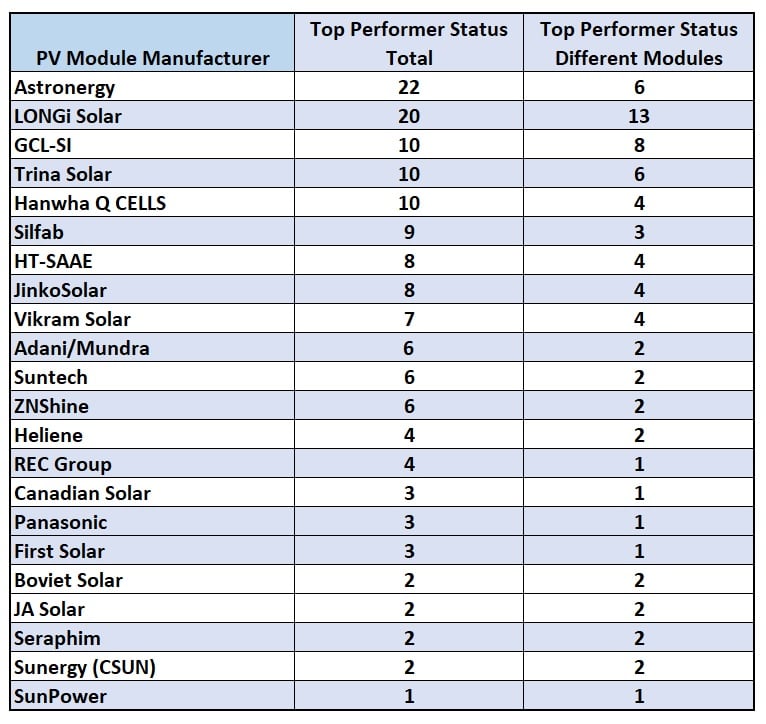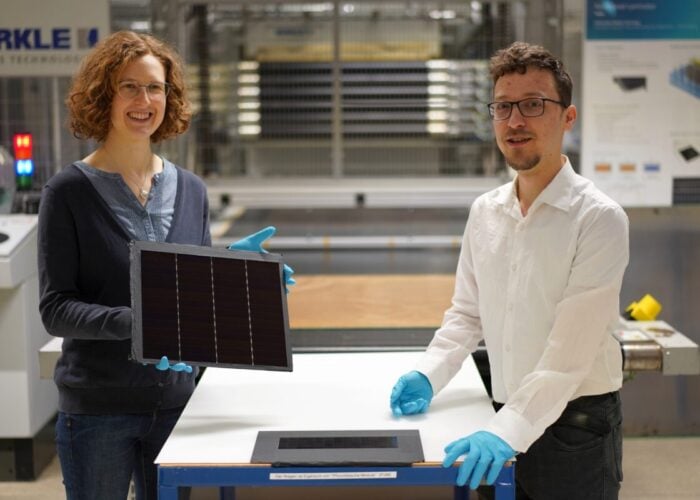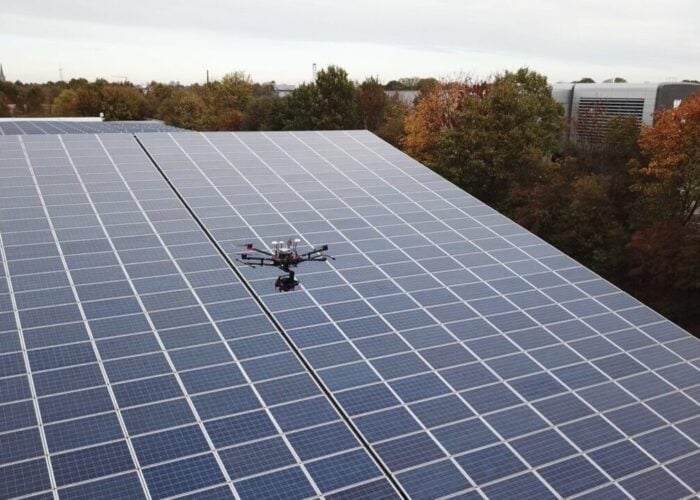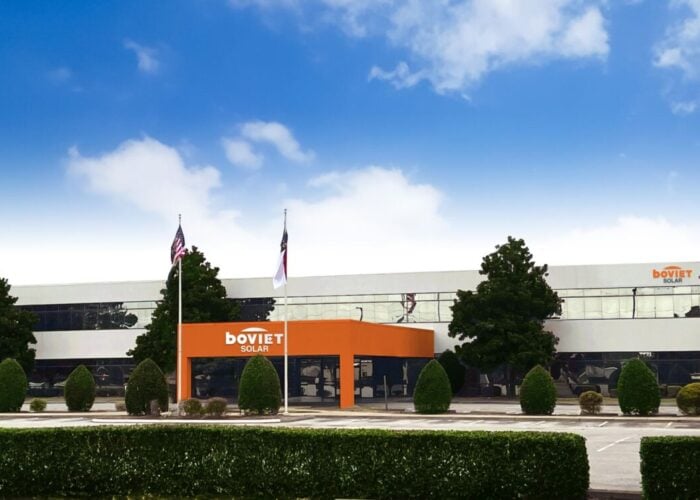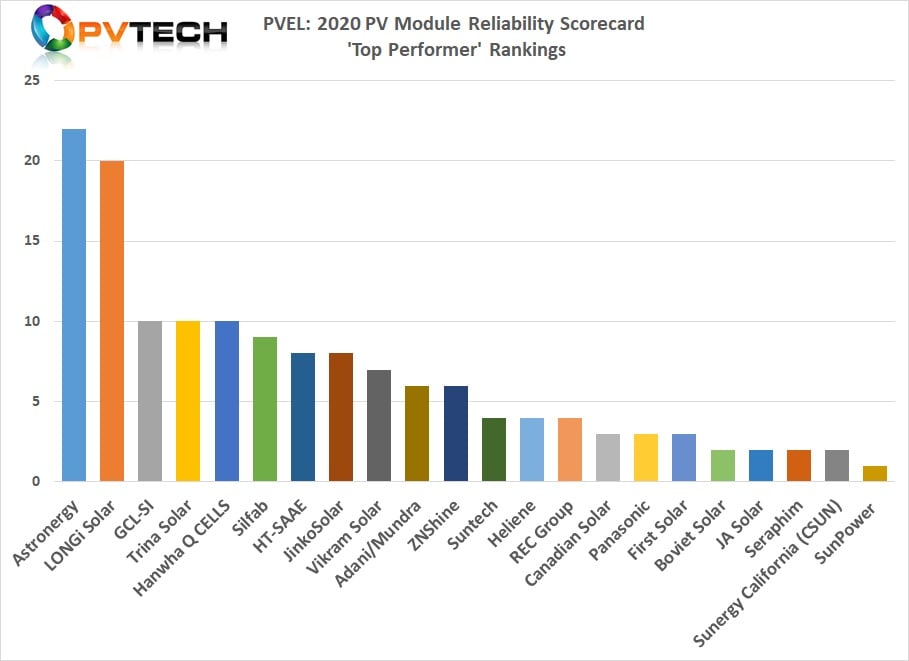
China-based PV module manufacturer Astronergy (CHINT) dominated PV Evolution Labs ‘2020 PV Module Reliability Scorecard’, with a total of 22 ‘Top Performer’ awards and key differentiation across several other core metrics.
According to PV Tech’s analysis of PVEL’s annual scorecard, Astronergy received ‘Top Performer’ status in all four of PVEL’s historical testing regimes, which include thermal cycling (TC), damp heat (DH) potential-induced degradation (PID) and dynamic mechanical load (DML) test for a total of four different PV modules, the highest number of modules obtaining a ‘clean sweep’ in the tests.
Try Premium for just $1
- Full premium access for the first month at only $1
- Converts to an annual rate after 30 days unless cancelled
- Cancel anytime during the trial period
Premium Benefits
- Expert industry analysis and interviews
- Digital access to PV Tech Power journal
- Exclusive event discounts
Or get the full Premium subscription right away
Or continue reading this article for free

The PV manufacturer – amongst the only four companies that achieved clean sweeps in the 2020 scorecard – was also the only member of the elite group that also achieved Top Performer status for two different PV modules (AstroTwins and AstroSemi) in PVEL’s new PAN file performance matching tests.
The AstroSemi module series uses multi busbar (MBB) and half-cut technologies, which can improve the reliability of modules while reducing cost and reducing cell-to-module losses (CTM). The modules feature higher light utilisation by using the 9BB technology, which could have contributed to higher solar cell micro-crack tolerance. Astronergy ‘s AstroTwins series modules are bifacial in a double glass configuration.
Astronergy achieved Top Performer status on the DML test for four different modules, equalled by only one other company of an eight-strong total and 17 different modules receiving Top Performer status in PVEL’s 2020 scorecard.
Half-cut cell technology can also reduce hotspot temperatures and Nominal Operating Cell Temperature (NOCT).
Jack Zhou, product management director of Astronergy/Chint Solar Crystalline Silicon Division, said: “I'm very glad that the ASTRO series have been awarded Top Performer again. The winning modules this time are the AstroSemi series and AstroTwins series modules that we are currently working on. The AstroTwins series retained degradation of less than 2% after five rigid extreme performance tests and achieved Top Performer status in each PQP test sequence, demonstrating the perfect combination of performance and reliability of Astronergy/Chint’s products.”
The annual ‘2020 PV Module Reliability Scorecard’ was recently published in partnership with DNV GL and was announced in collaboration with PV Tech via its TechTalk Webinar Series.
Tristan Erion-Lorico, Head of PV Module Business of PVEL, commented: “PVEL congratulates Astronergy for achieving Top Performer designations in the 2020 PVEL PV Module Reliability Scorecard.”
In total, Astronergy achieved 22 Top Performer awards from just six different modules that received awards in any single tests.
